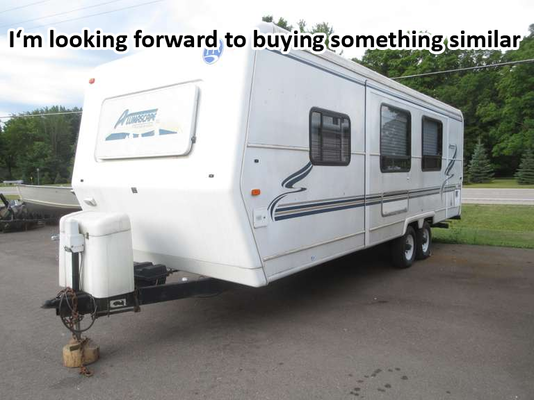craftercool
New member
Hello everyone! Owning an RV has been the dream of my life since I was a kid, but the thing is, I do not know a thing about them, so I'm definitely hoping to make good use of this forum and learn a lot.
That being said, finally, after so many years of thinking it, saving, and dreaming about it, it's hunting time! I'm about to start looking out there hoping to get myself a good deal and once and for all become an RV owner.
Now, I'm interested in a trailer, so my first thought is making sure it's not stolen or anything like that, is it the same procedure as with a vehicle? You get the serial number (VIN) and have it checked at the department of motor vehicles (although a trailer is not motorized)?
Have some advice? I mean I'm sure one has to check everything's working like the AC, lights, fans, but what advice would you give a rookie in order to avoid getting scammed.
Thanks in advance for any help on this.
That being said, finally, after so many years of thinking it, saving, and dreaming about it, it's hunting time! I'm about to start looking out there hoping to get myself a good deal and once and for all become an RV owner.
Now, I'm interested in a trailer, so my first thought is making sure it's not stolen or anything like that, is it the same procedure as with a vehicle? You get the serial number (VIN) and have it checked at the department of motor vehicles (although a trailer is not motorized)?
Have some advice? I mean I'm sure one has to check everything's working like the AC, lights, fans, but what advice would you give a rookie in order to avoid getting scammed.
Thanks in advance for any help on this.

